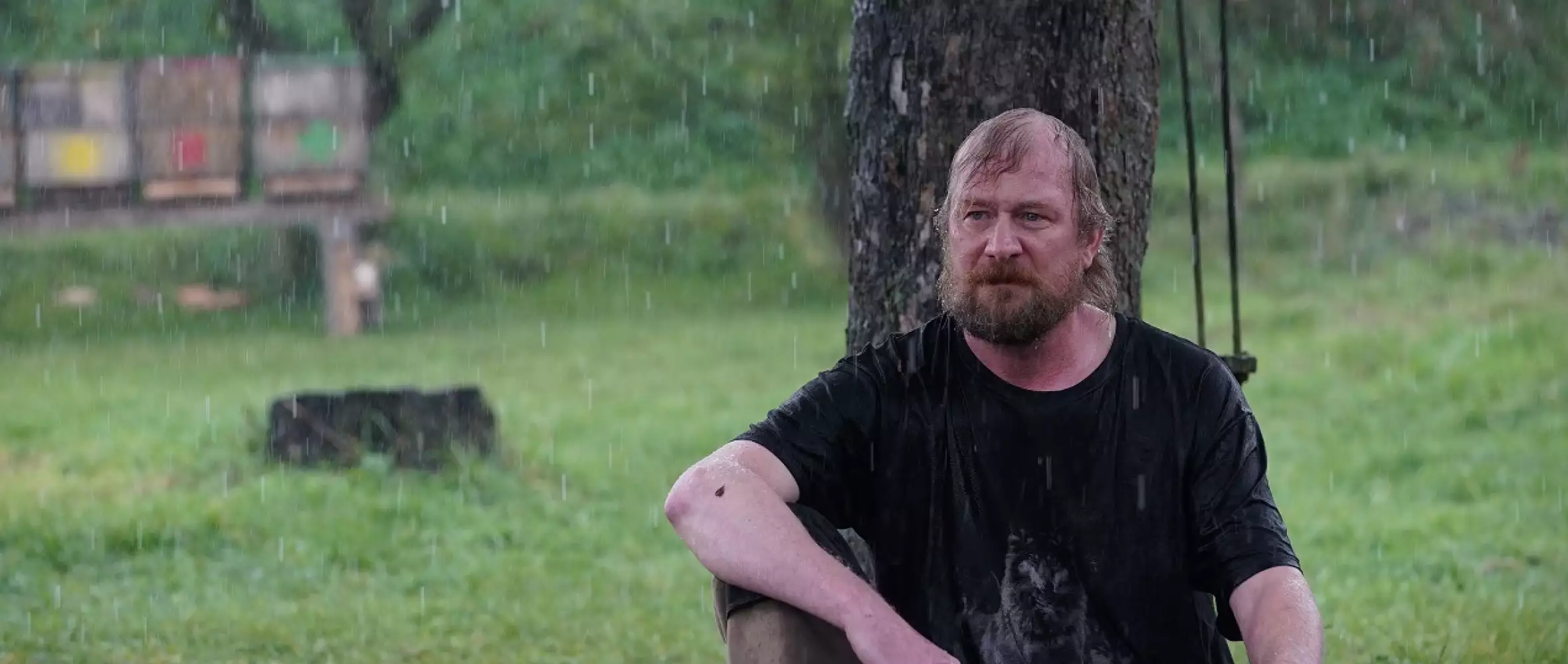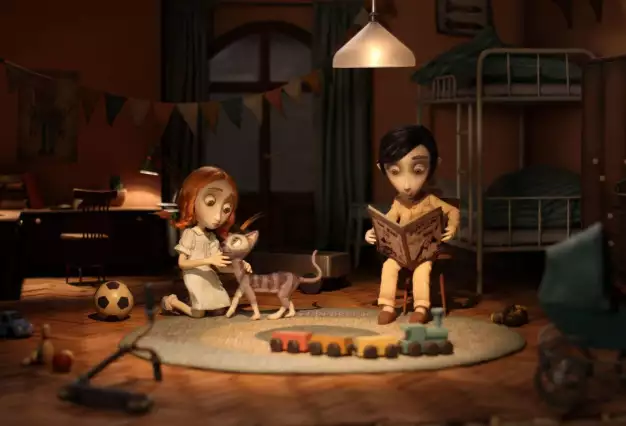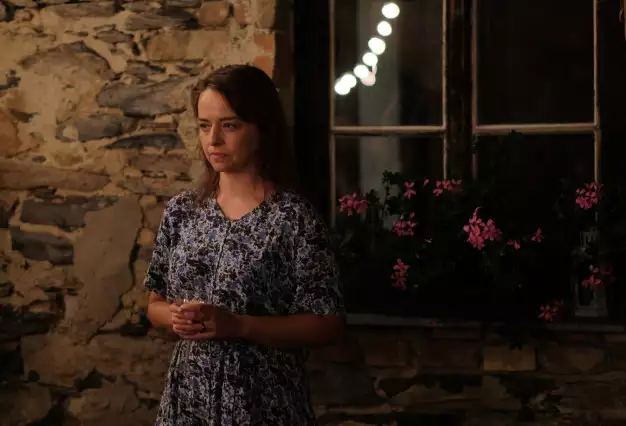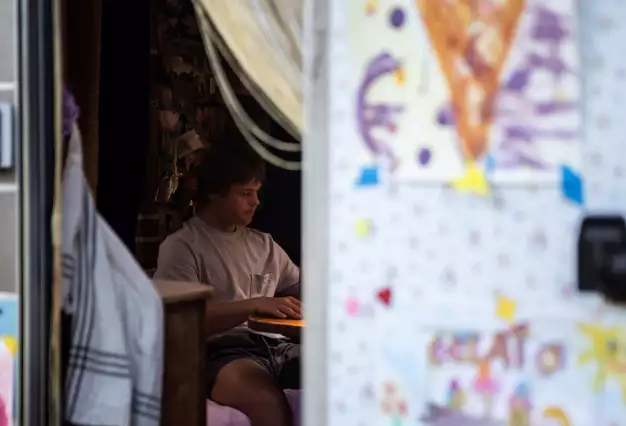
03 February 2023
Dry Season: Of men and land
Dry Season: Of men and land

Celebrated Czech writer-director Bohdan Sláma has completed filming his seventh project, the family drama Dry Season. His latest work addresses environmental change, climate crisis and Gen Z’s efforts to take control of their future and choose a path different from that of their parents.
Article by Martin Kudláč for CZECH FILM / Spring 2023
With his tragicomedies grounded in realism, Sláma is known for his deeply human stories, as he continues in the tradition of the Czechoslovak New Wave. After the Velvet Revolution, he was part of a new generation of filmmakers that garnered international recognition, at the same time as he established a strong foothold in the domestic market.
Films like his breakthrough Something Like Happiness, which won for Best Film at San Sebastian IFF and his latest feature Ice Mother, often explore the situation of social outsiders, relationship crises within confined communities, and the state of being on the periphery in small, country towns.
Clash of the patriarchs
Recently, Sláma wrapped production on Dry Season. Based on a screenplay which he wrote himself, the project sees him returning to the bucolic Czech countryside where he so often finds his characters.
At the heart of the plot is a conflict between two farming families. The former IT manager Josef, played by Martin Pechlát, is running an ecofarm. Leaving behind his career in the city, he relocates to the countryside with his wife Eva (Magdaléna Borová) and their children, including the eldest, 16-year-old Žofka (Dorota Šlajerová). In contrast to Josef we meet Viktor (Marek Daniel), owner of an agronomy company that grows large monocultures around Josef’s farm. Viktor is revenue-driven, and his practices show little concern for the preservation of nature.
“Having left the city behind, Josef pressures his family to live this unusual lifestyle amid an oasis of wild vegetation,” the director says. Unfortunately, Josef’s business venture doesn’t bring in enough money to provide for the family, so his wife has to carry the brunt of their finances.
Meanwhile Viktor is under pressure from his father (Boleslav Polívka), who doesn’t consider Viktor competent enough to run the sprawling enterprise and wants him to sell it to a giant holding company. The youngest man in Viktor’s family, Míra (Tomáš Sean Pšenička), has a different opinion. He prefers the ecofarming methods of their neighbor Josef, whose daughter he also happens to be in love with.
As the dry summer reaches its peak, the village runs out of drinking water. Eva suddenly gets ill, and despite her silent braveness, her husband and children finally have to step in with their support. Says Sláma, “The sickness of the body is related to the sickness of the landscape; the experience of the pain of the body is the experience of the pain of the landscape.”
%20Negativ_small.jpg)
%20Negativ%20small.jpg)
Small films on the world stage
Bohdan Sláma became a fixture on the international circuit in 2001 after winning recognition for his debut feature film, Wild Bees, at the IFF Rotterdam where he received the Tiger Award. Wild Bees went on to win a number of international awards. Sláma garnered even more accolades with his sophomore project Something Like Happiness, produced by Czech Negativ Film Productions and co-produced by Karl Baumgartner ‘s Pallas Film. At the world premiere in San Sebastian it did not only take home the Best Film award but also the one for the performance of lead actress Anna Geislerová.
Sláma’s follow-up A Country Teacher, saw Negativ partnering with French Why Not Production and Pallas Film again. One of a mere handful of queer dramas to emerge from Czechia, the film was selected for the Venice sidebar Giornate degli Autori. Four Suns, Sláma’s fourth outing — the story of an immature man’s attempt to save his family life and prevent his son from making the same mistakes as he did — premiered at the Sundance Film Festival.
New horizons
The filmmaker’s more recent works have diverged slightly from his trademark of small-town dramedies. His fifth film Ice Mother saw him take on the genre of romance. Aside from the central story line of a budding romance between elderly ice swimmers, the side plot revolved around conflicts between parents and their offspring. The film screened at the Tribeca Film Festival where it was awarded for the Best Script.
With his most recent completed project, the black-and-white drama Shadow Country, the veteran helmer adds yet another genre to his filmography. A period drama depicting the collective dynamics leading to genocide, Shadow Country chronicles conflicts during and after WWII between Germans and Czechs in a small village on the Czech-Austrian border.
Environment equals emotional urgency
While in Ice Mother, the older generation teaches the middle one about attitudes to life and the people around them, Dry Season sees the tables turned, as the youngest generation, Gen Z, rises to the occasion to correct their parent’s lapses.
%20Negativ%20small.jpg)
%20Negativ_small.jpg)
Through the characters of Žofka and Míra, Sláma captures this generation’s social and personal engagement, both in the home and with regard to the environment. As the two become romantically entangled in a Romeo and Juliet scenario, their fathers continue to feud over the soil – symbols of patriarchy’s inability to adapt to a changing world.
“While writing the script,” Sláma said, “I was concerned about my work turning into some sort of environmental propaganda. I want to understand both sides of the conflict as much as possible. I want to explore the truth and not interpret the world according to ideology. I want the film to ask questions with great emotional urgency – and I want Dry Season to lead to the hope that I see in the existence of love and the constant nurturing of it.”
Yet, rather than a product of ideology, the director’s story is based on his observations of the world. Sláma’s works have never been politically driven. Even Shadow Country explores collective action and consciousness as a historical phenomenon, focusing on how group dynamics are shaped by political regimes.
Award-winning cinematography
Dry Season is Negativ’s fifth collaboration with the esteemed Czech auteur, with Pavel Strnad and Petr Oukropec serving as main producers, following their collaborations on Ice Mother, Four Suns, The Country Teacher, and Something Like Happiness.
The film is coproduced by Slovak Artileria, who collaborated on Ice Mother, and Germany’s 42film, who worked with Negativ on the drama National Street. Czech Television has come onboard as coproducer, and the project was supported by the Czech Film Fund, MDM Mitteldeutsche Medienförderung, the Slovak Audiovisual Fund, and the South Moravian Film Fund.
Principal photography took place in the Czech Republic in fall of 2022, with several shooting days in Berlin. The film is lensed by respected cinematographer Diviš Marek, who has worked with Sláma ever since his graduation film, White Acacia, and has served as DoP on every one of the director’s feature-length projects.
Bittersweet countryside
Sláma points out that Diviš’s shooting style reflects the fact that the countryside itself is a character. The movie is shot in color cinemascope, he adds, to “add maximum depth to the connection of the characters with the landscape.” Postproduction will continue in the first half of 2023, and producer Strnad says he expects the film to be ready by summer 2023.
Domestic theatrical release of Dry Season is set for fall 2023, with Bontonfilm handling distribution in the Czech Republic and the Association of Slovak Film Clubs releasing the film in Slovakia. German theatrical release is under negotiation. The producers are also in talks with international sales agents, as the film is expected to travel the festival circuit like all of Sláma’s previous works.
Despite the crises at the center of the film, Dry Season has its fair share of comic moments and rough-edged rural humor. Strnad notes that Dry Season comes closest to resembling Sláma’s most successful box-office venture, Something Like Happiness, in that it takes on the hot topics of the day with the director’s signature bittersweet humanistic realism.




